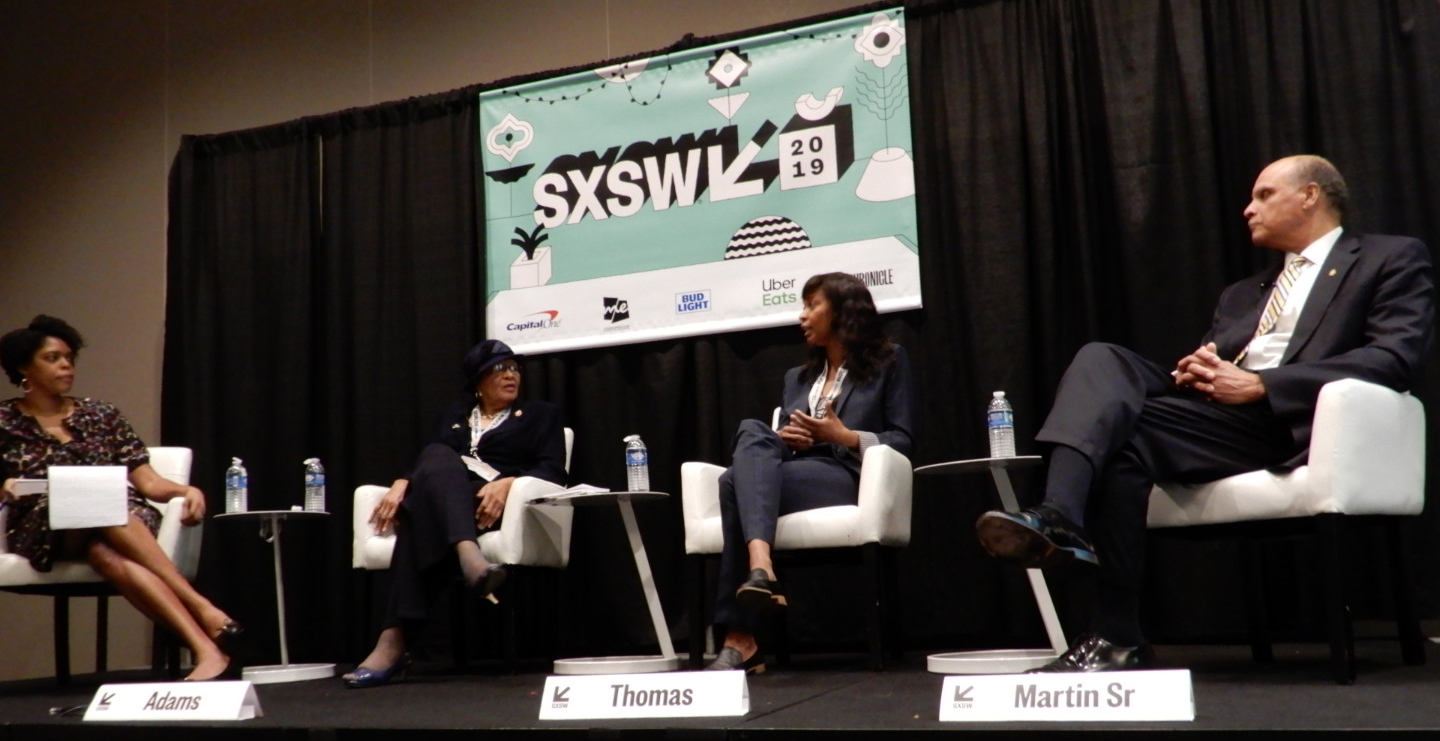
N.C. A&T TRiO Programs Celebrate 40 Years of Expanding College Access
02/24/2026 in Academic Affairs, Faculty, Staff, Students
03/10/2019
AUSTIN, TEXAS (March 10, 2019) – In a room filled with tech entrepreneurs, students and alumni supporters, North Carolina Agricultural and Technical State University Chancellor Harold L. Martin Sr., U.S. Rep. Alma Adams and Lyft Chief Diversity and Inclusion Officer Nilka Thomas shared why historically black colleges and universities (HBCUs) are the solution to the industry’s diversity challenge.
“If you’re talking about diversity, you have to be talking about HBCUs,” Thomas said.
 She’s right. Though HBCUs make up only 3 percent of all colleges and universities, they produce 42 percent of African American engineers and 47 percent of African American women engineers. The panel agreed that many companies likely aren’t seeking out HBCUs because they just don’t know the talent is there.
She’s right. Though HBCUs make up only 3 percent of all colleges and universities, they produce 42 percent of African American engineers and 47 percent of African American women engineers. The panel agreed that many companies likely aren’t seeking out HBCUs because they just don’t know the talent is there.
“HBCUs represent about 300,000 students. The institutions are diverse,” Martin said. “There are some that focus on STEM, some on liberal arts. The challenge is America tends to put all HBCUs in the same bucket.”
N.C. A&T itself defies easy description. Not only is it the largest HBCU, it is the top public HBCU and it produces the largest number of undergraduate degrees in engineering and agricultural sciences awarded to African Americans in the entire country. It also has significant strengths in business, the arts and social sciences while drawing students from around the United States and more than 60 foreign nations.
“That doesn’t just happen. Excellence isn’t cheap,” Martin said. “You have to make significant investments.”
Those investments amount to more than just appearances at job fairs, he said. They look like scholarships, learning opportunities, internships and employment, as well as investments in programs and facilities. These are sustainable relationships, like the ones N.C. A&T is growing with Lyft and other private concerns.
“Plenty of research suggests companies perform better when they are diverse,” Thomas said. “We can better reach our customer base because we have people who understand who our customers are. Our companies and organizations are microcosms of what is happening in our world.
It is relationships like this one that Adams and her counterparts in the Caucus are looking to build between industry and HBCUs. The Caucus created the HBCU Partnership Challenge in 2017 to do just that. Companies like Lyft, Duke Energy, Intel, SAP, Dell Technologies, Amazon and others have made a public pledge to incorporate HBCUs within their diversity and inclusion efforts.
“The partnership allows companies and institutions to come together to identify challenges and work together toward solutions,” Adams said.
The “HBCUs: A Key to Tech Diversity” panel, moderated by Shawna Thomas, Washington, D.C. bureau chief at Vice News, was the first of four discussions in a series that brought together members of Congress, tech industry giants and HBCU leaders.
These panels were organized by the Bipartisan HBCU Caucus, founded and co-chaired by Adams. The Caucus was created to educate members of Congress and their staffs about the importance of HBCUs, craft bipartisan legislation that levels the playing field for HBCUs and ensure HBCU students and their graduates are afforded equal access to 21st century opportunities.
“This benefits us all. A number of our HBCUs are now in Republican districts due to gerrymandering, so this is not just a Democratic issue,” Adams said. “Education should not be a partisan issue.”